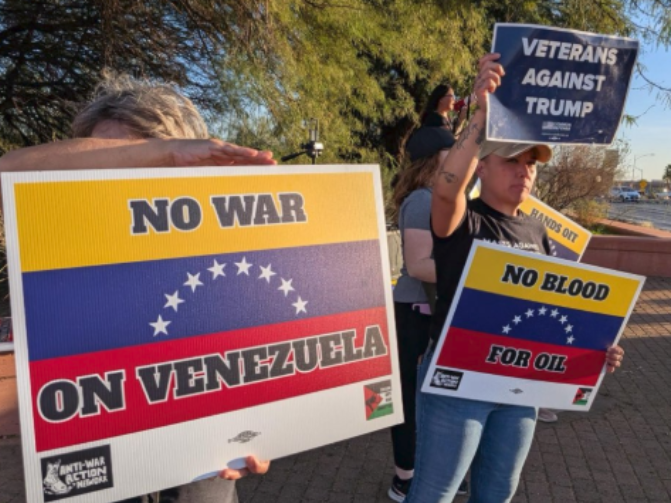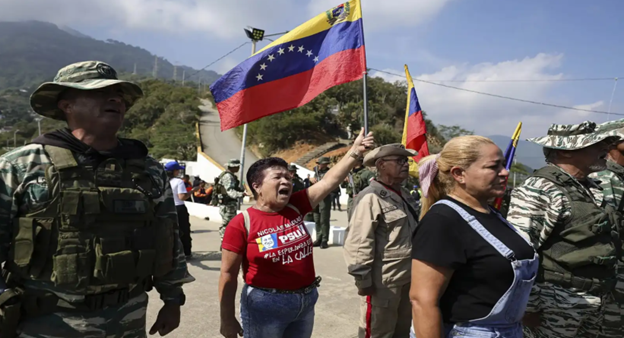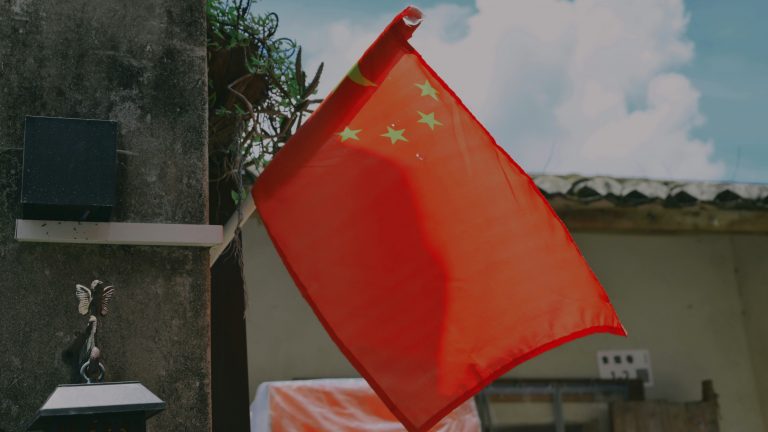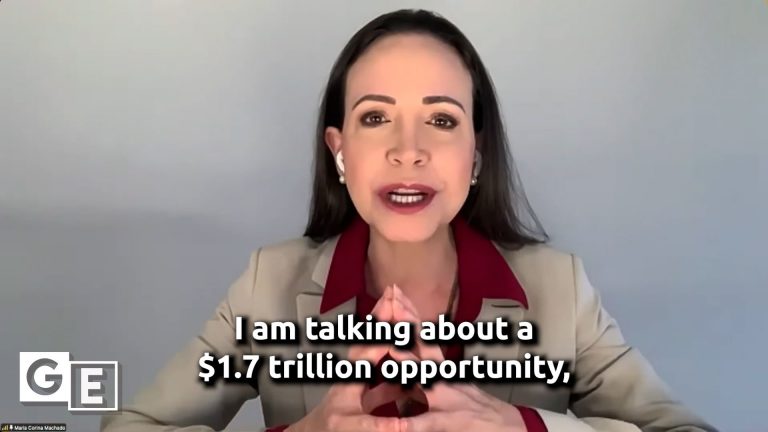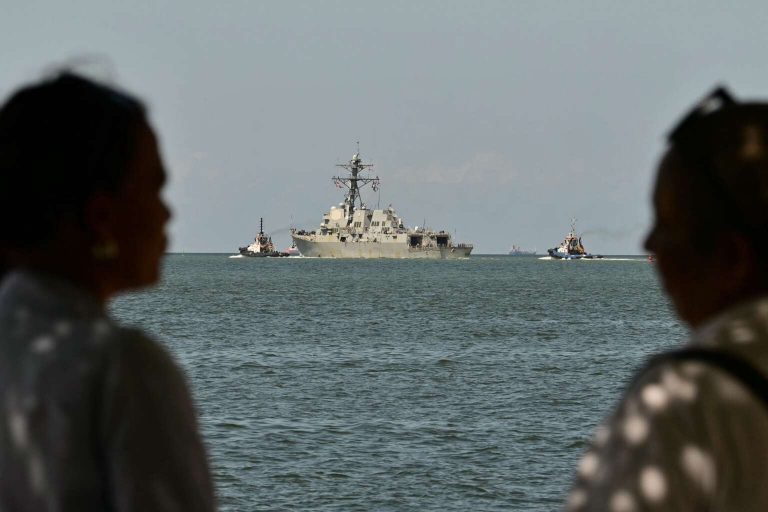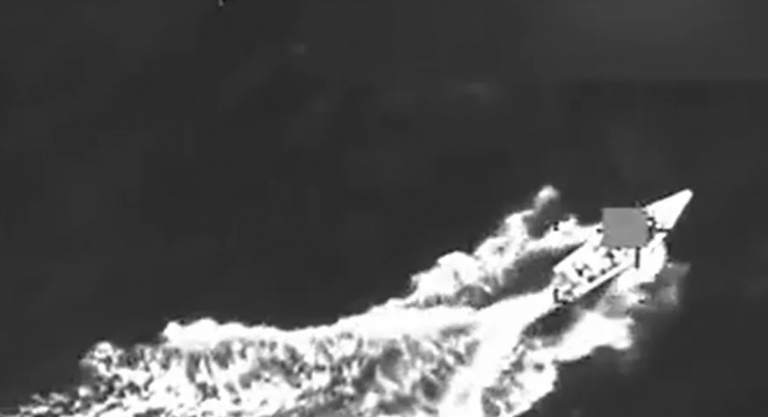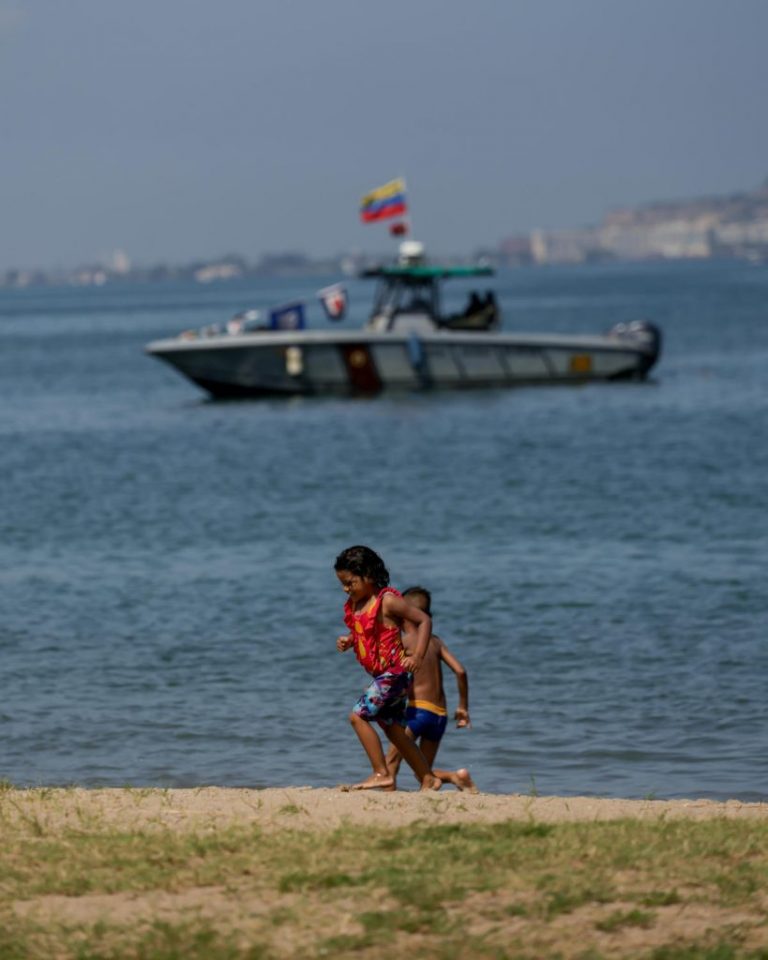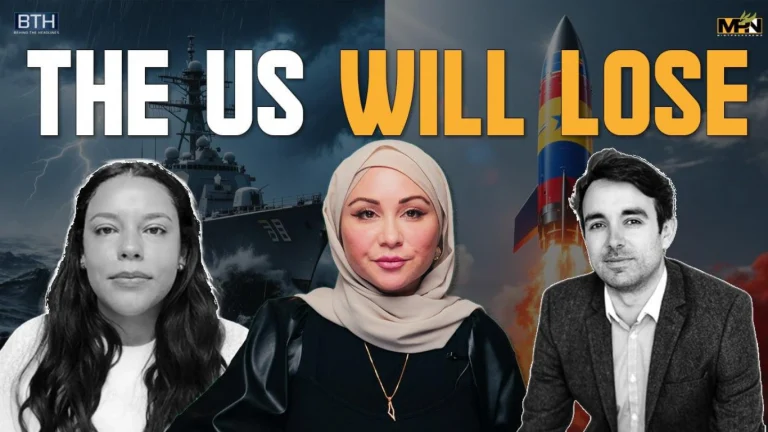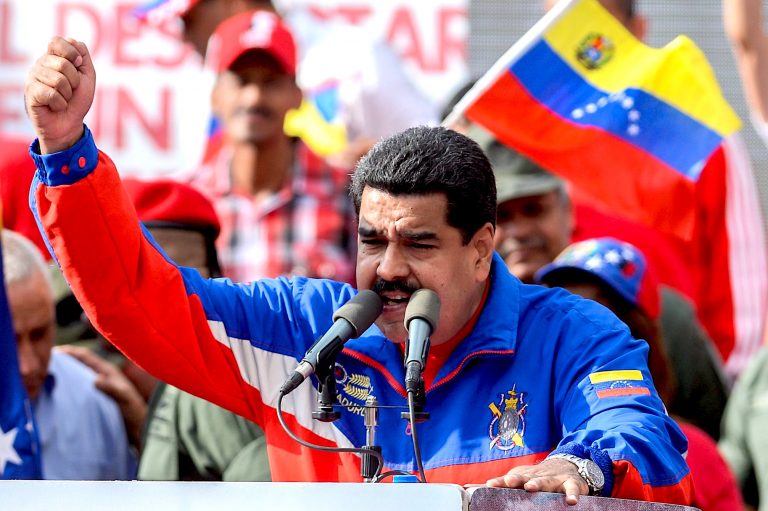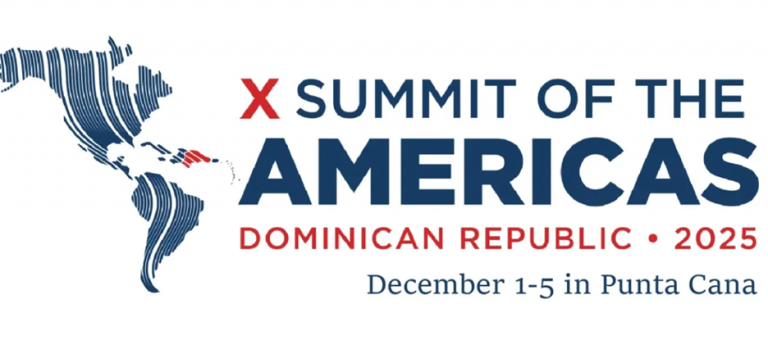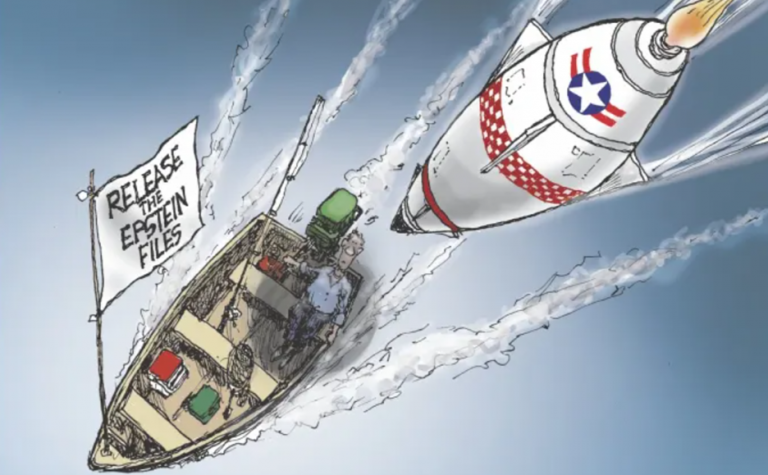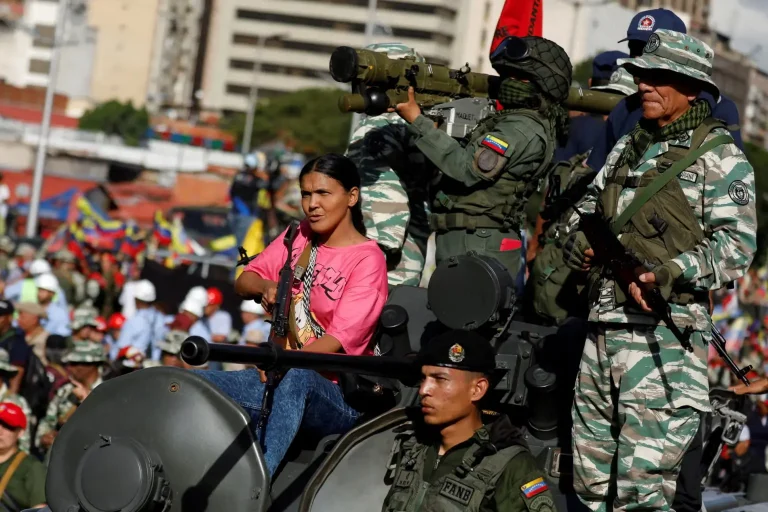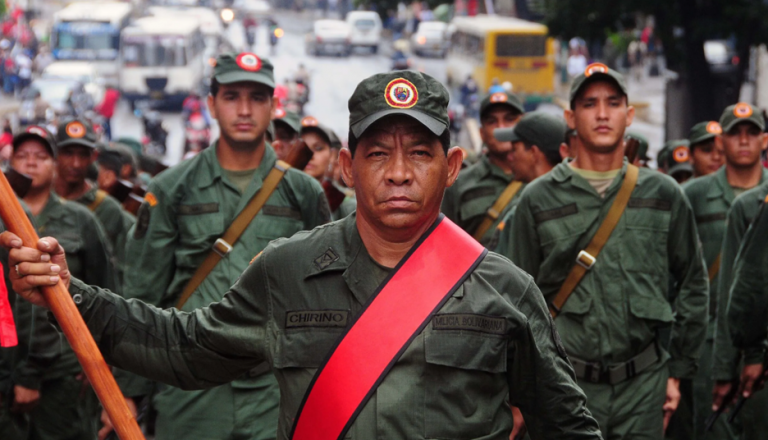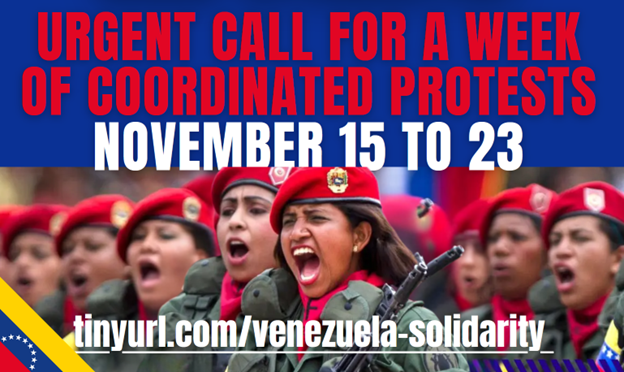Veterans, Activists Protest Air Command Center Against War On Venezuela
Tucson, AZ – Three progressive Veterans organizations and others joined the Tucson Anti-War Committee outside the Davis-Monthan Air Force Base on Veterans Day, November 11, to protest the Trump administration’s war escalations on Venezuela. The group of nearly two dozen protesters received many more supportive honks from passing cars than in previous years – a sign that the tide has shifted as more Americans are fed up with the endless war machine.
With signs reading “No blood for oil” and “Hands off Venezuela,” the group heard from veterans and anti-war organizers.

